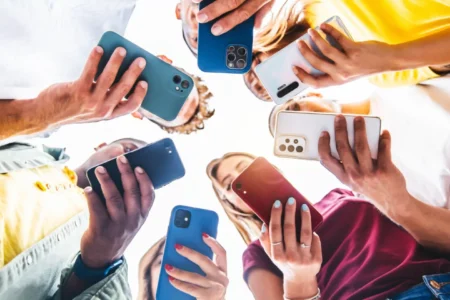Gen Z isn’t just cancelling “good vibes only” — they’re rebuilding the straight-talk language of mental health, one painfully honest post at a time. Gone are the days of self-care defined as cucumber slices on eyes and candlelit baths. Now, it means cancelling toxic friendships, learning how to say no without guilt, prioritizing therapy over brunch in the budget, and deleting the app and getting off-line when it’s too much on-line. “We don’t want pretty. We want real,” says Aanya Bhattacharya, 20, an artist in Kolkata, India, who regularly posts her raw sketches about anxiety attacks and intrusive thoughts – without filter or font overlay. “My mental health doesn’t have an aesthetic. It has triggers and scars.” What’s Actually Working?Therapy-Tok & Unfiltered Talk: Creators are defining new ground by going beyond self-care tips and openly discussing trauma bonds, emotional regulation, generational baggage and strategies for CBT. Accounts run by a licensed therapist and psychology students are gaining traction, not on gimmicks, but on grounded and relatable advice. Meaningful Memes: Surprisingly, one of the most effective vehicles of this movement? Memes. From “crippling anxiety starter packs” to “trauma response bingo,” dark humor is empowering Gen Z to express what they have been taught to suppress. And it’s working – because sometimes laughing at the pain helps you process it. So What Now? The future of Gen Z’s mental health revolution is not to stop using digital tools – it’s to use them thoughtfully. Therapists as influencers. Content-creating mental health professionals are increasingly becoming important bridges from awareness to action. Be it TikTok skits or Instagram infographics, their presence adds a level of expertise to the conversation. Offline support circles. Gen Z is starting to learn that healing does not always need to happen in public. Support groups, therapy pods, community care meet ups, and “venting clubs” are becoming more and more popular as safe offline avenues to express their emotions. As this generation of WiFi-native anxiety sufferers goes forth, they are creating something never seen in the world before: a mental health culture that is messy, honest, compassionate – and most importantly human. Keep reading Foramz for your daily dose of Moral support.
Take a walk through a college campus, a metro station, or a coffee shop, and you’ll notice one thing in common Gen Z is almost always plugged in. Whether it’s music, podcasts, or ambient sounds, there’s a non-stop stream of audio flowing directly into their ears. Headphones have become more than a gadget. They’re an identity, an escape, and for some, a survival mechanism. But here’s a question arises that no one’s asking loudly enough: What is this constant soundscape doing to their mental and physical health? The 24/7 Audio Loop For Gen Z, silence has become uncomfortable. Many can’t fall asleep without white noise or “sleepy” Spotify playlists. Studying? That requires lo-fi beats or dark academia instrumentals. Even social media apps are audio-forward from TikTok sounds to voice notes. This creates a dangerous reality: the brain rarely gets a moment of pure silence. Experts are raising concerns. neurologists warn “The brain is not designed for non-stop stimulation. Young adults who are constantly plugged in are showing early signs of attention fatigue and reduced emotional resilience.” Hearing Loss Is Hitting Early Headphones might seem harmless, but loud volumes over long durations are a recipe for irreversible damage. According to a recent WHO report, over 1 billion young people worldwide are at risk of noise-induced hearing loss due to unsafe listening habits. What’s worse? Most Gen Z listeners don’t even realize they’re turning the volume up too high. Noise-cancelling headphones, a Gen Z favorite, create an illusion of safety. But many crank up the volume to overpower environmental sounds, exposing their ears to 85+ decibels for hours on end enough to cause permanent hearing loss. Ringing in the ears is no longer just an old person’s problem. It’s showing up in teenagers. And it’s more than just annoying it leads to sleep issues, anxiety, and even depression. Escape or Avoidance? Beyond physical health, there’s a bigger, more emotional question: Why is Gen Z so desperate to stay plugged in? Part of it is the desire to create a personal bubble a way to feel in control in an increasingly chaotic world. But this bubble often becomes a wall. Headphones are becoming tools for social avoidance. Eye contact is lost. Conversations are skipped. Silence is feared. This kind of emotional detachment can lead to loneliness, social anxiety, and difficulty navigating real-world relationships. In a paradoxical twist, Gen Z the most connected generation in history is increasingly disconnected in real life. Can We Unplug? The solution isn’t to throw out the headphones. Music, podcasts, and audio spaces have enormous power they inspire, educate, and even heal. But like all powerful tools, moderation is key. Most importantly, reconnect with the sound of silence. Listen to your surroundings. Engage in a real conversation. Let your brain breathe. Because sometimes, the most powerful moments happen when the music stops. Keep reading foramz for your daily dose of emotional support.
In the last blog, we talked about how the issue of suicides taking place in the culture of influencers. The increasing number of influencer suicides is not just a mental health concern but also a social issue that needs timely action. The issue exposes the ethical failings of a society that values entertainment over well-being, consumerism lover authenticity, and validation over self-worth. Addressing this issue requires more than just surface-level fixes like policy changes and wellness programs. It demands deep moral understanding and counseling with the way we treat influencers, the standards we impose on them, and the way we, as. society, engage with the digital culture. The perception, that a person’s worth is determined by their social media presence and net worth is completely misleading. At the heart of the crisis lies this thought. Influencers are often reduced to mere content-producing machines, their value is measured in likes, engagement rates, and sponsorships. This strips their humanity and replaces it with a transactional identity, an identity that exists only as long as they are profitable and popular. The solution lies in the dignity of individuals beyond their digital personas. As influencers, it is important to teach yourself the identity online and engage with the critics that come with PR life. As a society, we must stop seeing influencers as disposable entertainment and start recognizing them as real people with struggles. This requires. cultural shift where authenticity is valued and not just the picture-perfect world is romanticized. Learn to value and see influencers for who they are. The influencer culture is deeply tied to materialism. Find a way to be grounded in your roots. Away from the materialistic bliss you can create. The success escalated with luxury lifestyles, brand deals, and an ever-growing follower count, creating an illusion that happiness is achieved through external validation. Many influencers chase this illusion, only to realize that it leaves them feeling empty, isolated, and depressed. A moral solution to this problem is to redefine success in a way that prioritizes personal growth, contribution to society, and inner fulfillment over external achievements. Influencers should be encouraged to use their platforms for meaningful impact rather than superficial appeal. Audiences, too, must shift their expectations, choosing to support content that promotes wisdom, depth, and self-awareness rather than content that merely entertains or fuels consumerism. One of the sad realities of influencer suicides the that society knowingly or unknowingly contributes to their suicides. These men engage with influencers as fellow human beings rather than as entertainment objects. Showing empathy and care by supporting them during both highs and lows is important. It is crucial to know that if we can not spread love at least not spread hate, because one comment can change a lot, in the influencer’s mind. t means offering compassion instead of criticism, supporting them during both highs and lows, and understanding that no one—no matter how famous—is immune to suffering. Society must embrace a digital culture of empathy, where kindness and respect are prioritized over judgment and mockery. Influencers are often pushed toward content that prioritizes aesthetic perfection, controversy, or sensationalism because that is what gains traction. The algorithms reward shallowness over substance, making it difficult for influencers to create content that is meaningful without risking a decline in engagement. The moral solution is to encourage virtue-driven content rather than vanity-driven content. Platforms should actively promote influencers who provide wisdom, ethical guidance, and valuable insights rather than those who simply chase trends or provoke controversy. Society must also take responsibility by supporting creators who offer depth and refusing to reward content that is harmful, manipulative, or excessively materialistic. The influencer industry thrives on oversharing, where personal struggles, relationships, and intimate moments are turned into content for public consumption. It thrives on creating “relatable” content, which requires putting a lot of your personal life information out there. This erodes the boundary between private life and public persona, leaving influencers with little space for genuine self-reflection and emotional recovery. Many influencers feel that their entire existence is on display, and when they experience hardships, they have nowhere to retreat to for real healing. To address this, there must be a moral commitment to respecting personal boundaries. Influencers should not feel obligated to share every aspect of their lives for engagement. Society must respect their right to privacy, and platforms should implement safeguards to protect influencers from excessive public intrusion. By restoring the sacredness of personal space, influencers can reclaim a sense of autonomy over their lives. Many influencers enter the industry seeking validation, attention, and financial gain, only to find themselves feeling lost and directionless. The constant pursuit of more—more followers, more engagement, more recognition—leaves them trapped in a cycle of dissatisfaction. This existential void can contribute to feelings of despair and hopelessness. A moral antidote to this is to foster a philosophy of purpose over popularity. Influencers should be encouraged to align their work with meaningful personal values rather than fleeting trends. They should focus on creating content that reflects their passions, beliefs, and long-term goals rather than content that simply appeals to algorithms. When influencers find purpose beyond numbers, they are less likely to fall into the trap of chasing validation at the cost of their mental well-being. The next generation is a generation who is born with a mobile phone in their hands. they know the digital world from both, and it is important to guide them and make them aware of the possible pros and cons of the digital world. If society does not take a step to proactive steps, the cycle will continue. If society does not take proactive steps, the cycle will continue. Schools, families, and communities must incorporate digital ethics into education, teaching young people how to engage with social media responsibly and how to separate self-worth from online validation. Emotional resilience training should be part of early education, helping individuals build strong identities that are not easily shaken by digital pressures. By instilling these values early on,



